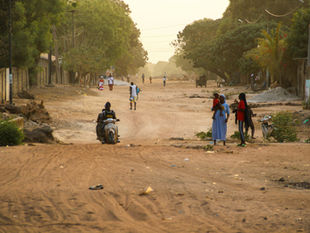.png)
LSESU WAR STUDIES SOCIETY
Haiti currently faces a crippling humanitarian crisis, characterized by high levels of political turmoil and economic deprivation. Recognized as the poorest country in the Western Hemisphere, the Caribbean nation-state struggles with famine and displacement: according to the United Nations (UN), at least 700,000 Haitians have been internally displaced, and half of the population (5.4 million) suffers from acute hunger. At its core, the situation in Haiti can be attributed to the upsurge of gang-related violence which shows few signs of subsiding.
Gang violence is not necessarily “new” in Haiti: since the 2021 assassination of President Jovenal Moise, opposing coalition groups like the “G9” and the “GPep” have battled for control. Nevertheless, the past few months have revealed an upsurge in kidnappings, rape, and murder. On October 3rd, an attack in Ponte-Sondé left 70 civilians dead, and UNICEF has warned that children now make up at least 1/3 of the gangs. With an estimated 80% of Haiti’s capital, Port-au-Prince, being controlled by armed groups, observers’ and experts’ concerns have intensified.
Thus far, the international community’s approach has centered around the “Multinational Security Support Mission in Haiti” (MSS). After being approved by the United Nations Security Council (UNSC), the MSS launched in October 2023. Led by Kenya, the mission aimed to assist Haiti’s beleaguered police force by deploying around 400 foreign police officers to combat gang-related crime. Over the summer, there was a brief period of optimism as the MSS made “significant progress” in reopening airports and increasing the availability of food aid. Nevertheless, recent developments suggest the lull in violence was the “calm before the storm.” With thousands displaced, and with Haiti’s interim Prime Minister warning that “we are nowhere near winning this,” the UN ultimately voted unanimously on September 30th to renew the MSS’s mandate for one more year. Could this renewal be the answer to Haiti’s crisis?
The new mandate promises to deploy more policemen to Haiti, but whilst the mission is approved by the UNSC, it is not a UN operation. Instead, it relies on voluntary contributions, meaning the MSS tends to be undermanned and underfunded. Additionally, there is a concern that supplementary foreign police officers will not properly engage with the Haitian population given their lack of language skills and inexperience with Haitian neighborhoods.
The US government suggested the creation of a formal UN Peacekeeping mission in late September, but this was opposed by Russia and China who argue the MSS has not had enough time to establish itself. Haitians are also wary of an armed UN presence because of past experiences, and prefer to remain dependent on non-governmental assistance as a “republic of NGOs.”
As more Kenyan troops land in Port-au-Prince amidst a worsening situation, international observers should watch Haiti closely. The Caribbean state is a model case for how conflict, security, and humanitarian intervention interact together, and Haiti seems to be locked in a catch-22 situation. Foreign intervention risks exacerbating gang-related aggression and yet, Haiti lacks the strong domestic institutions it needs for a unilateral response. With the UN warning of a “cataclysmic” human rights situation, the international community must act fast.
By: Ane Burke






